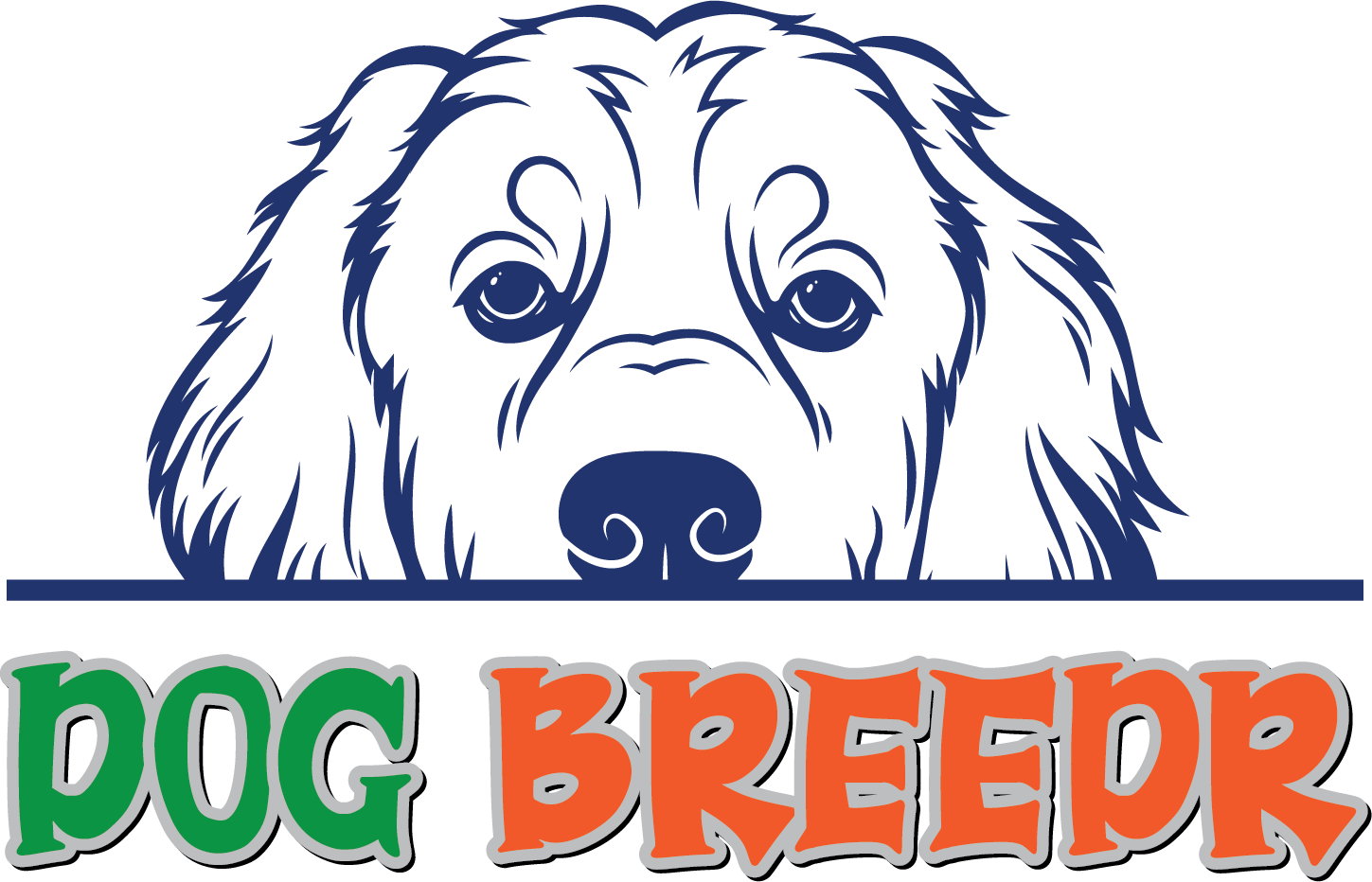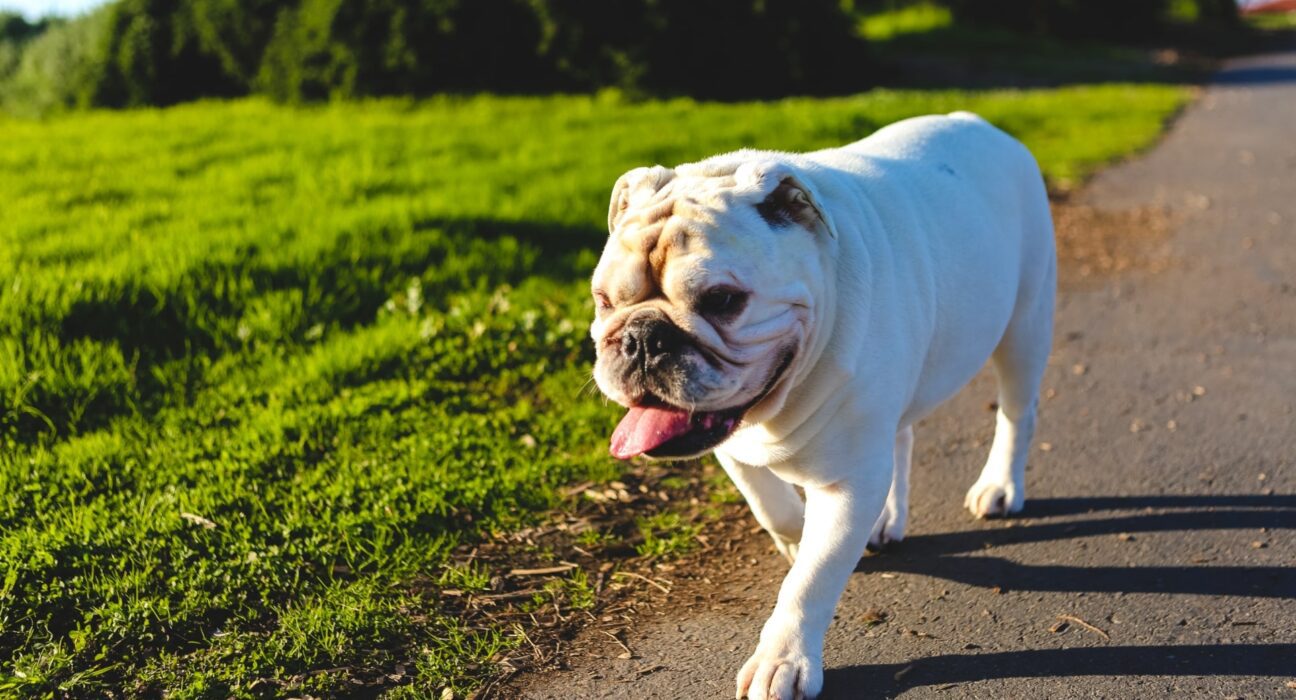The Bulldog is one of the most popular breeds in the world, renowned for its distinctive look and amiable character. This medium-sized breed originated in Great Britain and was used as a guard dog and companion animal. Bulldogs are sometimes called “English Bulldogs,” but they come from all regions of Great Britain.
Today, Bulldog owners can be found in every corner of the globe. Not only do these loyal companions bring joy to their homes, but they also make excellent family pets and show dogs.
Bulldog Appearance And Personality
Bulldogs are known for their wrinkled faces and stocky bodies. They have a broad heads, with round eyes set low on their face.
Their muzzle is short, and their nose is usually black. Ears are small and often cropped or folded over to the side of their face.
The shoulders are broad and muscular; leading down to a straight back that should be level from shoulder to hip.
Their tail is generally short or nonexistent due to docking (removing it surgically). They come in various colors, such as fawn, white, red, brindle and piebald.
When it comes to personality, Bulldogs make great companions. They tend to be loyal and affectionate with their family members but may be cautious around strangers.
They are generally lazy and enjoy lounging around, which makes them good pets for apartments or smaller homes without a yard.
They can be stubborn, but they will learn basic commands and tricks with patience. They may bark at unfamiliar people or situations, so early training are essential to ensure their behavior remains controlled in public settings.
Bulldogs make great family members if you understand their need for daily exercise and activity. With reasonable care, such as regular grooming, diet and vet checkups, your dog will live a happy life by your side.
How To Care For A Bulldog
One of the best things about owning a bulldog is that they require minimal exercise and make excellent pets for small living spaces.
However, since they are brachycephalic breeds and their faces are flatter than other dogs, some additional health concerns should be considered when caring for them.
Grooming your dog is essential to keep them looking healthy and their best. It would help if you brushed your dog’s coat at least twice a week to remove any dirt or debris and reduce matting and tangles in the fur.
Additionally, it’s essential to clean the wrinkles around their face with a damp cloth daily to prevent bacteria from accumulating.
It’s also essential to provide your dog with a balanced diet. Bulldogs are prone to weight gain, so you should talk to your veterinarian about the type of food and recommended serving size that is best for your pup.
Make sure never to feed your dog table scraps or human food, as they may be unhealthy and lead to obesity.
They can also be prone to respiratory problems due to their short noses and wide nostrils. This means that it’s essential for them to remain calm in warm weather, so make sure not to overexert them outside during the summer months. Also, try not to leave them in direct sunlight for extended periods, as this can cause heat stroke.
Lastly, your dog must get regular checkups and vaccines to maintain good health. Your veterinarian can advise on the best schedule for your pup’s vaccinations and health screenings, so it’s essential to take their counsel seriously.
Caring for a bulldog may require extra attention compared to other breeds. Still, with proper grooming, diet, exercise and veterinary care, they make lovely furry companions who bring joy into the lives of many.
By following these tips, you can be sure your dog stays healthy and happy. With a little extra effort and love, your pup will reward you with lots of adorable smiles and snuggles.
What To Feed A Bulldog
When feeding a bulldog, it’s essential to understand its special dietary needs. They are prone to weight gain and may be sensitive to certain foods. They require a diet that is both balanced and tailored specifically for their breed.
The best type of food for dog is one that is designed specifically for them. Many brands on the market nowadays are specifically made for dogs with short faces, like the Bulldog.
These brands usually contain fish oil, oats, brown rice, and other quality proteins, which help provide energy and proper nutrition for your pet’s daily activities.
In addition, these dogs should also get regular supplements to maintain strong bones and joints. Joint supplements can help maintain healthy joint cartilage and reduce the risk of joint problems. Glucosamine and Chondroitin are two popular supplements that are highly recommended for bulldogs.
Regarding treats stick with low-calorie options such as carrots, apples, green beans or rice cakes. Avoid feeding them table scraps or other sugary snacks, as this could lead to health issues in the long run.
Overall, it’s essential to feed your dog a balanced diet that includes quality proteins, healthy carbohydrates and vitamins and minerals needed for their daily activities.
Regular exercise should also be part of their routine to keep them fit and active. Your dog will stay healthy and happy for many years with proper care and nutrition.
It’s also important to remember that Bulldog puppies have different dietary needs than fully grown adults. Puppies require more calories, proteins, fats and carbohydrates than adults because they are still growing.
During this age, it’s vital to ensure your pup gets all the essential nutrients needed for growth and development.
Petty-specific food is recommended to ensure they get all the necessary vitamins and minerals for proper growth.
Always talk to your veterinarian before making any changes in your dog’s diet, as each dog may have different dietary needs depending on its health status or lifestyle. With the proper nutrition, you can be sure your dog will have a long and happy life.
Bulldog Health Problems
Bulldog health problems can include a variety of respiratory, skin, and other issues.
Breathing problems: Bulldogs can have several breathing issues due to their brachycephalic head shape having shorter snouts than other breeds.
This puts them at increased risk for asthma, allergies, and airway obstruction, which can cause difficulty breathing.
Your veterinarian may recommend a diet change if allergies cause your dog’s breathing issues. Dogs with mild to moderate cases may respond to medications or supplements that support better respiration. Surgery is sometimes necessary in more severe cases.
Skin and ear diseases: Skin issues such as acne, dryness, mites, or infections are common among Bulldogs due to the combination of their short coats and wrinkles.
These dogs may also suffer from ear infections due to their long, floppy ears. Both of these issues can be managed with regular cleaning and topical treatments prescribed by a vet.
Eye disorders: Bulldogs are also prone to eye disorders such as the cherry eye (when the tear duct becomes swollen), glaucoma, and cataracts.
If left untreated, these problems could lead to vision loss or even blindness in severe cases. These dog owners need to monitor their pet’s eyes for any signs of redness or discharge, which may signal an infection that needs medical attention.
Regular checkups with your veterinarian can help identify potential health concerns before they become serious problems.
Your vet is also an excellent resource for advice on how to best care for your Bulldog and keep them healthy.
With the proper diet, exercise, and lots of love, you can ensure that your Bulldog will have a long and happy life.
Conclusion
Bulldogs are a modern breed, and for a good reason. They’re lovable, loyal companions with lots of personalities.
However, it’s important to remember that they require special care and attention to stay healthy. With a balanced diet, regular exercise, and plenty of affection, you can be sure your Bulldog will live a long and happy life. Always consult with your veterinarian if you have any questions or concerns about your pet’s health.
By following these best practices, you’ll be well on your way to providing the best possible care for your Bulldog.

